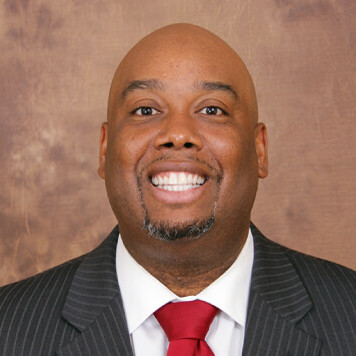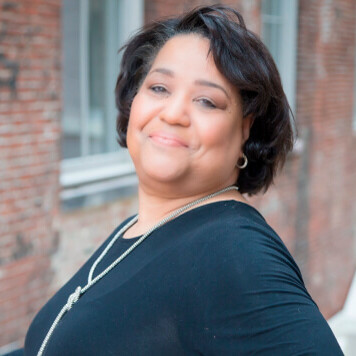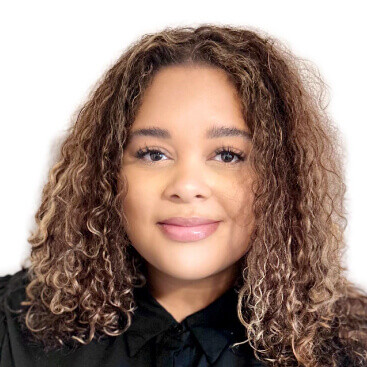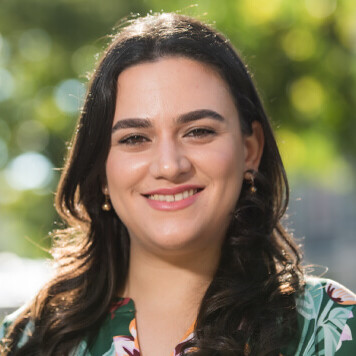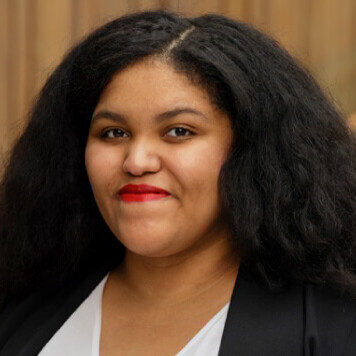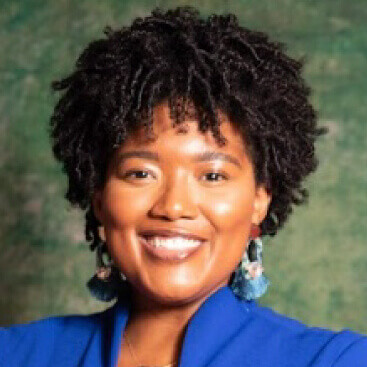Advancing Social Justice
research & change
About Us
The Thurgood Marshall College Fund (TMCF) created the Dr. N. Joyce Payne Center for Social Justice (CSJ) to serve as a nexus in advancing social justice for Black Americans. CSJ is a national think tank and research center, rooted in the African American community, drawing together top HBCU scholars, national thought leaders, community advocates and on-the-ground solution-makers to identify, evaluate and scale new evidenced-based programs and policies designed to create sustainable change to the fabric of Black life in American society.
Creating a New Paradigm for Social Justice
Social injustice is deeply embedded in policies and practices in every level of government and industry. It not only costs lives, it continues to diminish educational and economic opportunities for millions of African Americans and…Read More
The Dr. N. Joyce Payne Center for Social Justice
Agora Strategy Council
Officers
- Dr. Jonathan C. Augustine, Chair
- Ms. Meredith R. Weisel, Vice Chair
- Rep. Harold M. Love, Jr., Rapporteur
Ex-officio
- Dr. N. Joyce Payne, Founder
- Dr. Harry L. Williams, President & CEO
- Dr. M. C. Brown II, Executive Director & Research Scientist
Members
- Ms. Pamela Alexander
- Mr. Philippe E. C. Andal
- Atty. Katherine S. Broderick
- Dr. T. Elon Dancy II
- Dr. Kimberly E. Freeman
- Dr. Howard Henderson
- Mr. Carl Hill
- Hon. Meldon Hollis, Jr.
- Dr. Christopher B. Knaus
- Dr. Herman “Skip” Mason, Jr.
- Mr. Carl McNair
- Dr. Derryn Moten
- Queen Quet
- Ms. Patricia Tyson
The Agora Strategy Council is the group of carefully selected individuals appointed based on their specialty knowledge or technical expertise in public policy, urban affairs, social justice, education, social science, and related fields. The Agora’s purpose is to provide strategic advice on content-related matters, assist in shaping the research activities of the Payne Center, and identifying/pursuing operational funding opportunities.
Staff
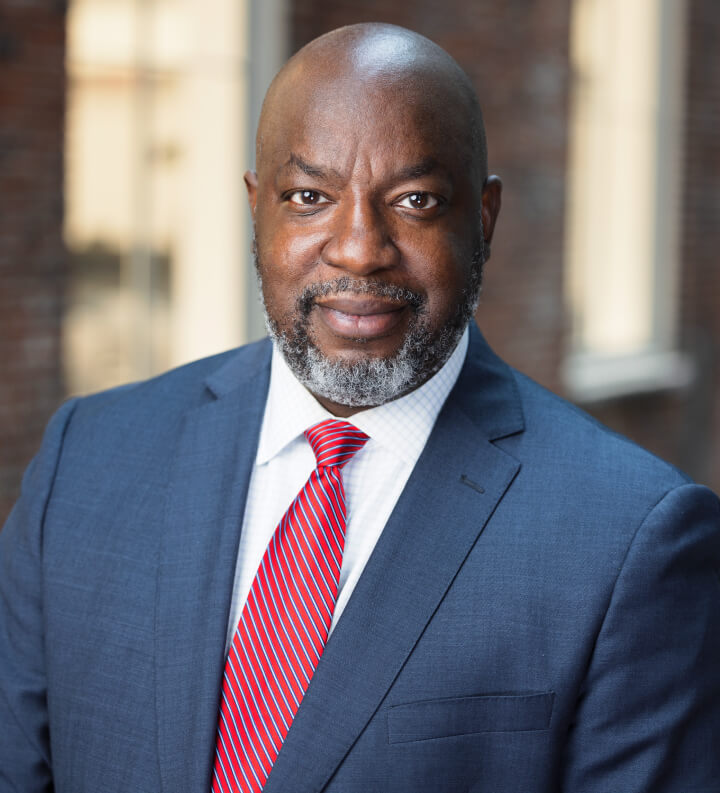
Dr. M. C. Brown II
Executive Director & Research Scientist
M. C. Brown II serves as Executive Director of the Dr. N. Payne Center for Social Justice at the Thurgood Marshall College Fund. The Payne Center for Social Justice is devoted to independent research that leads to pragmatic and innovative ideas regarding the intractable problem of social justice facing society by conducting and commissioning
policy studies and research from and about historically Black colleges and universities.
Regarded as an international scholar in the areas of education policy, governance/administration, and institutional contexts, Dr. Brown has lectured and/or presented over 400 keynotes and research papers in various countries on six of seven continents. He is the Founder of the Atwood Institute on Race, Education, and the Democratic Ideal and the former Executive Director and Chief Research Scientist of the Frederick D. Patterson Research Institute of the United Negro College Fund. Dr. Brown’s research has been funded by the Lumina Foundation, Spencer Foundation, AT&T Foundation, the Pew Charitable Trusts, the Sallie Mae Fund, as well as other foundations and corporations.
He is the author/editor of 20 books and monographs, including two editions of the bestselling textbook, Organization and Governance in Higher Education – and over 100 journal articles, book chapters, and publications related to education and society. A two-time recipient of the Philip C. Chinn Book Award from the National Association for Multicultural Education, Dr. Brown also received the Association for the Study of Higher Education’s Promising Scholar/Early Career Award and the AERA Committee on Scholars of Color Early Career Contribution Award.
Dr. Brown held full-time faculty appointments at the University of Missouri-Kansas City, the University of Illinois at Urbana-Champaign, and The Pennsylvania State University and senior academic administrative roles at the University of Nevada-Las Vegas, Fisk University, and the Southern University and A & M College System. He served as president of both Alcorn State and Kentucky State Universities – both 1890 land-grant institutions. In the nonprofit sector, Dr. Brown also held executive appointments at the American Educational Research Association and the American Association of Colleges for Teacher Education.
Dr. Brown received the Bachelor of Science in elementary education from South Carolina State University, the Master of Science in educational policy and evaluation from the University of Kentucky, and a Doctor of Philosophy in higher education from The Pennsylvania State University with a cognate in public administration and political science.
WHO WAS JUSTICE THURGOOD MARSHALL?
Where you see wrong or inequality or injustice, speak out, because this is your country. This is your democracy. Make it. Protect it. Pass it on.
- Thurgood Marshall
A lawyer, civil rights activist and the first African American U.S. Supreme Court justice, Thurgood Marshall advocated for equality, justice, social change, and above all, education. He is best known for helping to win the landmark case Brown v. Board of Education of Topeka in 1954 that ended legal segregation in America’s public schools. Linda Brown (left) was at the center of the landmark Supreme Court case “Brown v. the Board of Education, Topeka, Kansas” that desegregated schools in the U.S.
Linda Brown (left) was at the center of the landmark Supreme Court case “Brown v. the Board of Education, Topeka, Kansas” that desegregated schools in the U.S.
Born in Baltimore July 2, 1908, the grandson of a slave, his original name was “Thoroughgood,” but he shortened it to “Thurgood” in second grade.
Marshall attended Baltimore’s Frederick Douglass High School and Lincoln University in Pennsylvania where he was a member of the first Black fraternity, Alpha Phi Alpha Fraternity, Inc.
Marshall couldn’t attend the University of Maryland School of Law because of the school’s segregation policy. Later, as a civil rights lawyer, he sued the school for this policy in 1935 and won, ending segregation at the school in Murray v. Pearson.
After graduating first in his class from the Howard University School of Law in 1933, he opened a private practice law firm in Baltimore where he argued a record-breaking 32 cases before the Supreme Court, winning 29 of them. He fought the State of Maryland for equal pay for Black schoolteachers who were receiving the same salary as janitors.
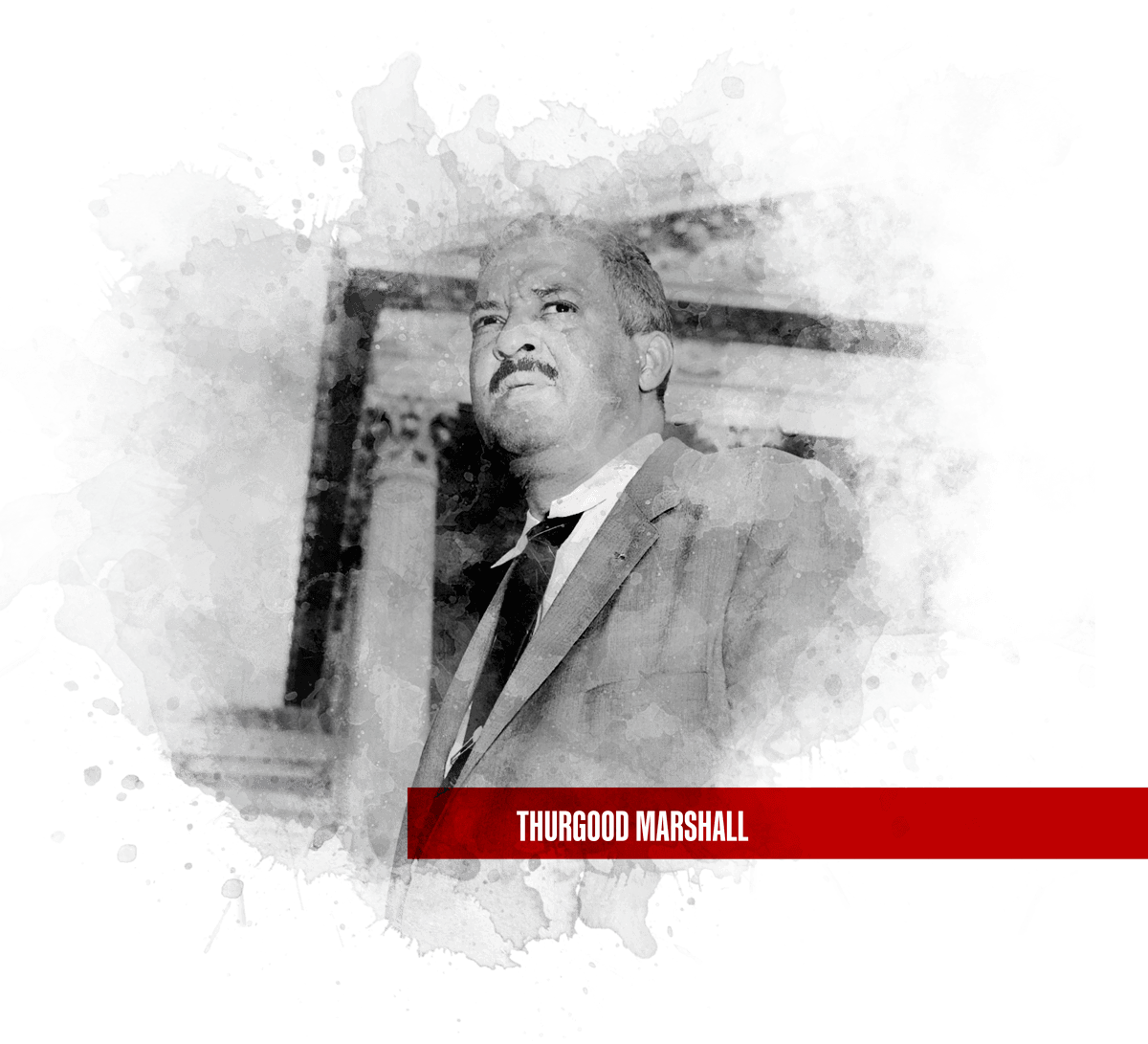 At the age of 32, Marshall won his first U.S. Supreme Court Case, Chambers v. Florida, and later that year, he was named chief counsel for the National Association of the Advancement of Colored People (NAACP). He argued many successful cases before the U.S. Supreme Court including Smith v. Allwright in 1944, Shelly v. Kraemer in 1948, Sweatt v. Painter in 1950, and McLaurin v. Oklahoma State Regents in 1950.
At the age of 32, Marshall won his first U.S. Supreme Court Case, Chambers v. Florida, and later that year, he was named chief counsel for the National Association of the Advancement of Colored People (NAACP). He argued many successful cases before the U.S. Supreme Court including Smith v. Allwright in 1944, Shelly v. Kraemer in 1948, Sweatt v. Painter in 1950, and McLaurin v. Oklahoma State Regents in 1950.
In 1954, Marshall successfully argued before the Court the case Brown v. Board of Education of Topeka, in which the U.S. Supreme Court struck down the “Separate but Equal” doctrine, declaring racial segregation unconstitutional in American public schools thus ending legalized segregation of education institutions.
Marshall retired from the bench in 1991 and passed away January 24, 1993, in Washington, DC at the age of 84.
HISTORICALLY BLACK COLLEGES & UNIVERSITIES
Since its founding in 1987, the Thurgood Marshall College Fund (TMCF) has been laser-focused on ensuring student success at publicly supported Historically Black Colleges and Universities (HBCUs) by creating access to higher education, promoting educational excellence, and preparing the next generation of talent through leadership development.
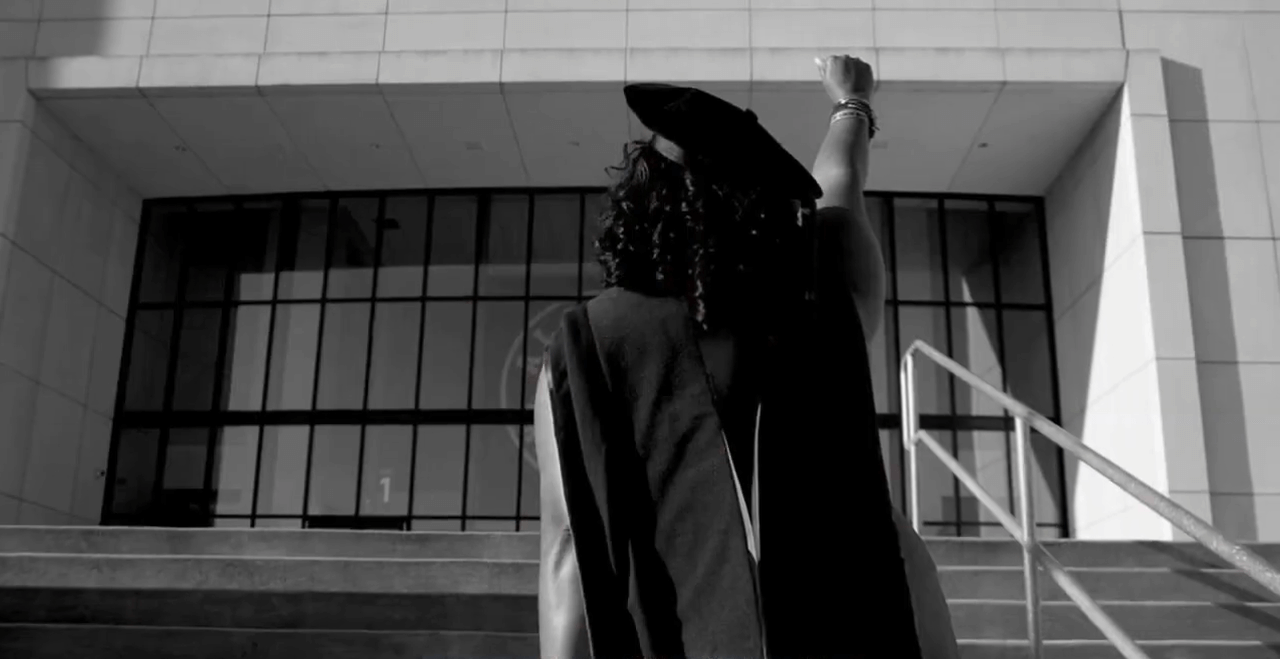
HBCUs have a 150-year history of providing opportunity for racial uplift for Black Americans through education. They have served as a nexus for opportunity and advancement, research, and developing innovative solutions to long-standing barriers to achievement and advancement faced by Black Americans. With this background and history, today’s social and political climate necessitates that TMCF broaden its work to more forcefully engage in addressing social justice issues more explicitly.
There are 101 HBCUs and Predominately Black Colleges (PBIs) across the nation and nine percent of all African American college students attend HBCUs. All HBCUs play a critical role in the American system of higher education. For most of America’s history, African Americans seeking a college education could only get it from an HBCU.
HBCUs hold a leadership role within the African American community with a history of educating and training African American leaders who have been at the forefront of social change.
HBCUs disproportionately enroll low-income, first-generation and academically underprepared college students – precisely the students that the country most needs to obtain college degrees. More than 75% of students at HBCUs rely on Pell Grants and nearly 13% rely on PLUS Loans to meet their college expenses. HBCUs have 1/8 of the average size of endowments than historically white colleges and universities.
Against these odds, HBCUs have provided an affordable education to millions of students of color, graduating the majority of America’s African American teachers, doctors, judges, engineers, and other scientific and technological professionals.
